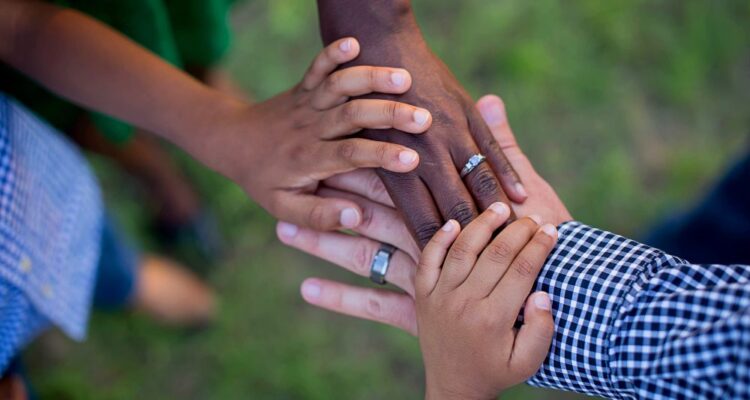I grew up in the United States as a biracial (Asian/white) kid in a loving Thai-American family. It was not until my 30’s that I realized how recently my parents’ marriage would have been considered illegal in much of the United States. “Anti-miscegenation” laws banned interracial marriage in the majority of U.S. states until the 1950s—and sixteen Southern states stubbornly clung to these laws until the U.S. Supreme Court ruled them unconstitutional in Loving v. Virginia on June 12, 1967. It is stunning to think that laws like these, had they not been overturned, would have prevented my own parents’ marriage, and therefore my own life!
It would be nice if the story ended with Loving v. Virginia. But, as Martin Luther King Jr. wrote in Stride Toward Freedom, although changed laws are a crucial part of progress and “a form of education” for the public, in the end “morals cannot be legislated.” The Supreme Court may have struck down anti-miscegenation laws’ legal authority, but it could not change people’s opinions.
In fact, it would be thirty-three more years before the last state, Alabama, would voluntarily remove these laws from its constitution. You might imagine that this was just an overdue legal formality, overwhelmingly backed by public opinion—but the facts reveal a far more troubling reality. The November 2000 vote to remove the anti-miscegenation clause from Alabama’s constitution was highly controversial. The amendment passed, but with the support of only 59.5 percent of voters. Two out of five Alabamans were still against interracial marriage.
This is not ancient history. This happened when I was a teenager.
Had I been more familiar with this history, I might not have been so shocked when, in 2016, Americans—led by 81 percent of white evangelicals—voted an overtly racist president into the White House. I now understand that this was not an anomaly, but the fruit of a centuries-old racism that has been alive and well in American culture—and, sadly, in much of the American church—since our country’s origins.
That election sent me on a journey of leaning about my own ethnic identity, the histories of my peoples (European Americans, Asian Americans, Christians), and how Jesus relates to it all. What I have gained—in the face of a blasphemous white Jesus wearing a MAGA hat—is a clearer view of the Jesus of the gospels: the brown-skinned, Middle Eastern (Asian!) God-man who carried multiethnicity in his bones (see Matthew’s genealogy) and who delighted in tearing down the sinful barriers that we humans constantly erect to separate each other.
Today, on the anniversary of Loving v. Virginia—affectionally known as “Loving Day”—I offer my reflections in this poem, entitled “Loving.”
Loving
I look down at my warm brown hands
and hold in them the thought
that my own parents—Mom,
an immigrant from Thailand,
Dad, a white man born in Kansas—
grew up in a time when plenty
folks who looked like them
were not allowed to wed,
their loving still prohibited
by law. I came just decades late
enough to miss that hateful show
and only later came to know
that inconceivable reality
that would have barred my breath
before I had begun to breathe—
its sharp blade missing me
by less than half a century,
less than a lifetime wedged
between loving my life
and never knowing it.
And knowing this reminds me
this has never been my home,
for I am imaged after One
whose birth was heaven kissing earth,
whose eyes of fire will one day burn
and bend and break systemic
swords like these, remixing,
making them into his plowshares,
making way for people
planting seeds.
This poem was originally published in Asian American Christian Collaborative’s Reclaim Magazine on May 2, 2023 and is reprinted with permission. You can read the original here.

